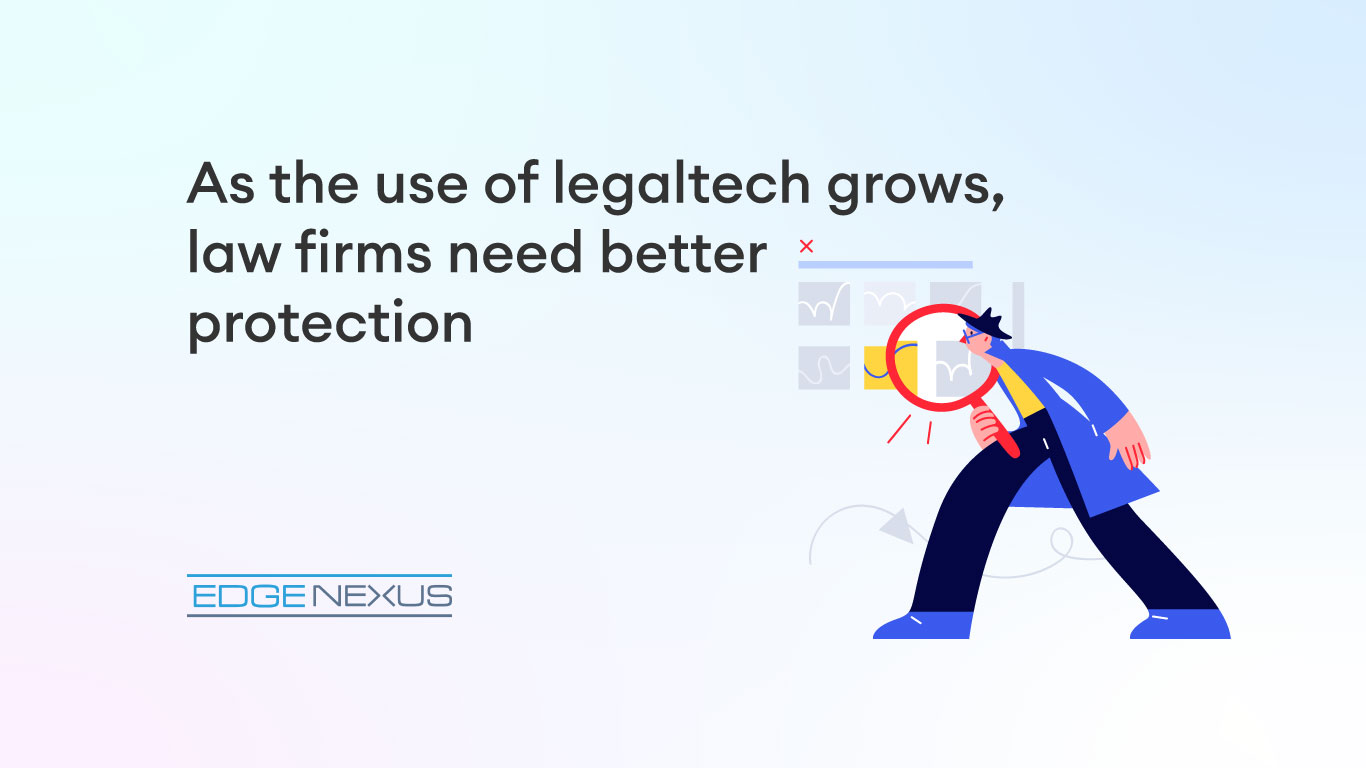From legal collaboration to automation of services and working digitally with all partners, legaltech continues to become vital for all law firms. But protecting the data as it flows can easily be overlooked as the focus on productivity outweighs the need for security.
Legal transaction tools, law service bots, document automation are all big wins for law firms. Software that can easily be adopted and deployed to even the most traditional of legal teams to improve the pace at which they work and to share knowledge.
What may have started out as a niche market is growing fast. LexisNexis’s recent acquisition of French firm Closd which provides a collaborative SaaS platform for managing legal projects, is just one example of legal automation becoming table stakes for all firms and providers. Legaltech startups and high-growth firms give all sizes of all firms the digital tools they need.
As risk and compliance, Environmental, Social and Governance (ESG) initiatives, General Data Protection Regulation (GDPR), health and safety, and the endless contract work ramps up. Firms are either playing catch-up with the digital initiatives or looking ahead to the next waves of automation and digital law.
The future of digital law and IT security protection
Either way, remaining cognisant of security between the different services, clouds and providers is something that can be overlooked. According to a recent Future of Law article on why law firms struggle to digitise,
“Your average in-house legal team has a huge number of fires that urgently need putting out. At the same time, there’s a massive push towards digital transformation, which will require doing things differently. The main challenge for in-house leaders is how on earth do I balance my team and my capacity between all the fires that I need to keep putting out and all of the strategic stuff that no one has time to do.”
During these critical times, law firms need to either get in-house IT security working to protect the firm or partner with external providers who can deliver the security tools needed to protect a modern business. These include:
- Internal office firewall with email filtering/protection
- Malware and antivirus tools
- Web application firewall
- Intrusion detection tools
- Cloud security posture management (CSPM) where needed
The security solutions, can be part of an overall package, or custom selected to protect the business. From firewalls to cloud protection or malware and intrusion tools, all need to work invisibly for the firm, ensuring that non-experts are protected, just as much as those who can recognise a scam email or a dubious attachment. They also need to provide the business with clarity on the risks their IT faces and what steps to take to protect it.
Firms also need to understand and respect IT security regulations for the legal industry and partner industries they work with. Internal compliance, document protection, access rights, and other issues are all key to preventing hefty fines and loss of reputation or business.
Fortunately, cloud and on-premises services that deliver the right set of IT security solutions are easier to find and deploy for firms of all sizes. Even specialist law firms say those focused on intellectual property rights, immigration rights or the commercial sector need to focus on security as well as adopting the latest legal robot tools or using AI to improve their performance.
IT security must be accepted as part of doing any business while having legal professionals and other roles within law firms take the time to understand the risks is also vital. Through a mix of education and strong security, law firms can ensure they have the right privacy settings, encryption for data, and secure services. Whatever services your law firm adopts, taking steps are essential for across the board protection:
- Enable two-factor authentication on business services and sites.
- Use a password manager to drive the use of strong passwords or phrases.
- Encrypt your email and files between all endpoints.
- Protect your mobile devices with remote-wipe capabilities.











